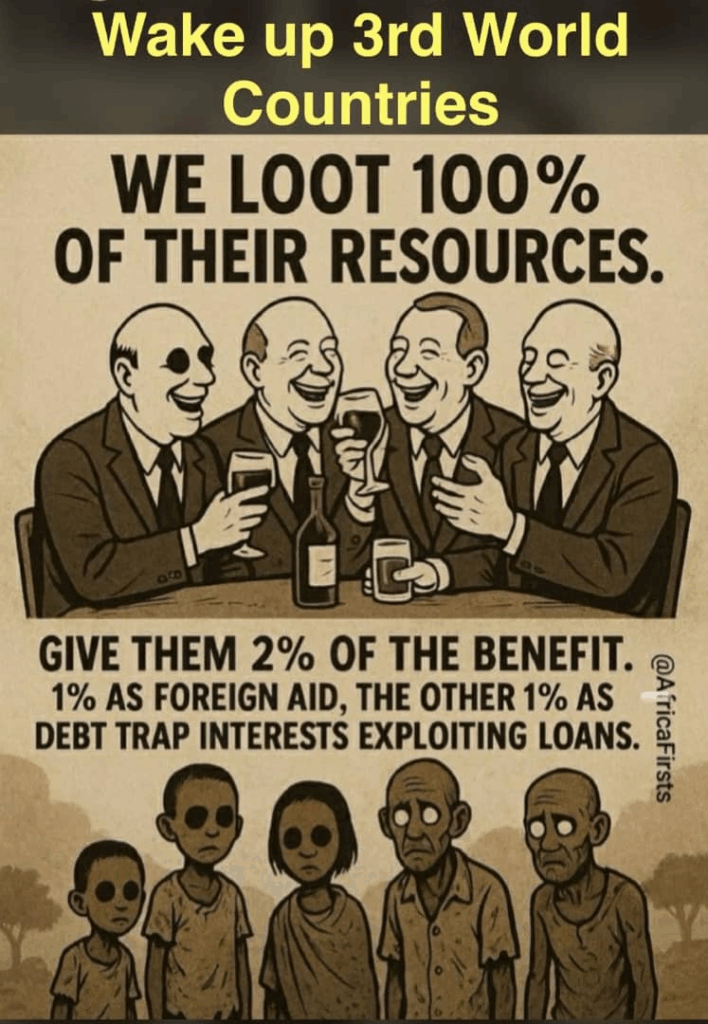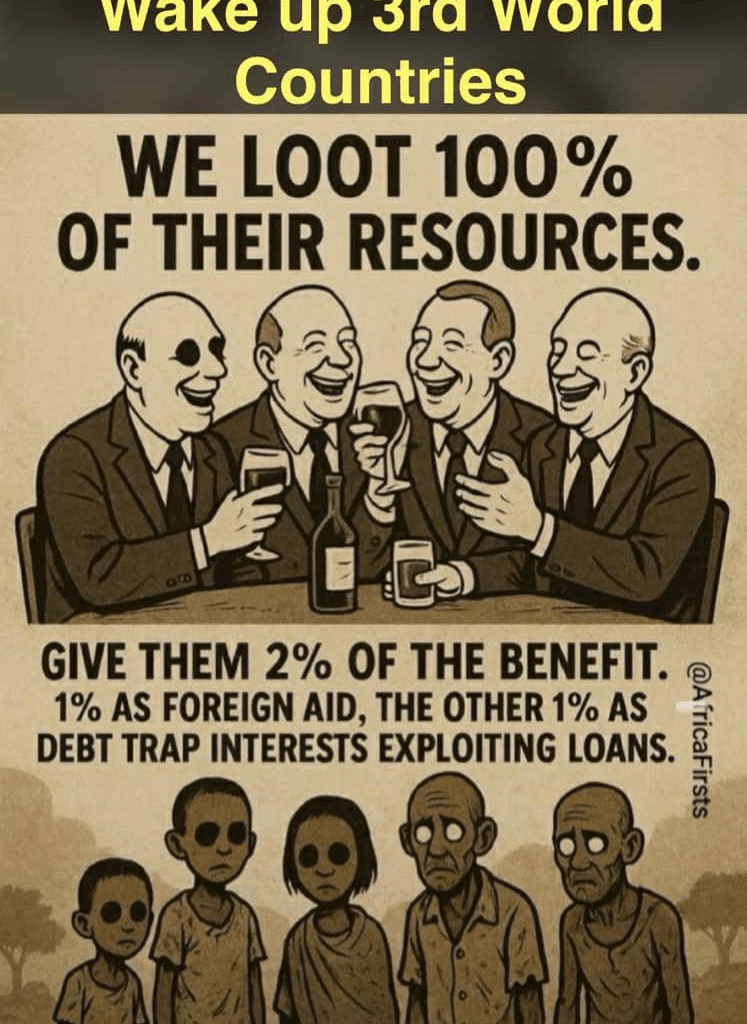31
The image of suited men laughing as they declare, “We loot 100% of their resources and give back 2% as aid and debt traps”, is not satire. It is South Africa’s lived reality. Thirty years into democracy, we remain prisoners of an extractive economic system designed to strip us of our wealth, keep us in debt, and marginalize the black majority.
Exporting Raw, Importing Finished: The Value Gap
South Africa is one of the richest mineral economies in the world. Mining contributes around R356 billion to GDP and provides 25% of total export earnings [InvestSA]. Yet, this wealth does not translate into prosperity for the majority.
Why? Because most of our minerals are exported in raw or minimally processed form:
In 2024, South Africa exported 20.5 million tonnes of chrome ore [FastMarkets]. Only a fraction was processed locally into higher-value ferrochrome.
In manganese, barely 2% of mined ore undergoes domestic processing [FastMarkets].
Of total mining export earnings in 2024 (R674 billion), only R87.5 billion came from processed minerals. The rest — a staggering R586.4 billion — was raw [DMRE].
This means that while jobs, skills, and profits from refining, smelting, and manufacturing are captured elsewhere, we are left importing the finished goods — at inflated costs. South Africa, a country blessed with immense mineral wealth, remains dependent on others for the very products made from our soil.
Debt, Interest, and the Cost of Captivity
The second chain that binds us is debt.
South Africa’s gross government debt stood at R5.69 trillion in 2024/25, projected to rise to R6.09 trillion in 2025/26 and R6.82 trillion by 2027/28 [IOL].
Debt-to-GDP sits at 75–77% [CEIC Data].
The annual interest bill is now R385.9 billion — that’s about R1.06 billion per day diverted from services and infrastructure [WSG].
In 2022/23, debt service cost R308 billion, swallowing 13.5% of total government spending [Stats SA].
Interest payments equal 15.6% of total government revenue [Trading Economics].
This is the debt trap: we borrow to cover deficits, then borrow more to service old debt, all while our economic growth lags behind the interest rate. We are caught in a vicious cycle where debt grows faster than the economy itself [SA-TIED].
The effect is devastating. Money that should be funding schools, hospitals, railways, and factories is instead handed to creditors. Our sovereignty is mortgaged to the lenders who profit from our dependency.
Betrayal of the Elite
This system is sustained not only by foreign interests but by local elites who collude in the looting. Instead of enforcing beneficiation, industrialization, and local manufacturing, they allow our minerals to be exported raw. Instead of building alternative financial systems, they keep us on the leash of the IMF, World Bank, and bond markets.
The black majority — the downtrodden, the unemployed, the hungry — are left with nothing but broken promises. Meanwhile, the privileged minority, both local and foreign, feast on the benefits.
Breaking the Chains
We must confront this system with courage and urgency:
Industrialize and beneficiate locally — Process our chrome, manganese, platinum, and rare earths here at home, creating jobs and industries.
Debt restructuring and resistance — Renegotiate, restructure, and, where necessary, reject predatory loans.
African financial independence — Build pan-African banks and monetary systems to replace dependency on Western capital.
Transparent resource governance — Audit all mining contracts, exports, and royalties; expose the deals that rob our people.
People-centered economics — Judge economic policy not by GDP figures, but by whether the child in the township eats, whether the youth find work, and whether the elderly live in dignity.
Conclusion
The numbers tell the story: R586 billion in raw exports vs R87 billion in processed exports; R385 billion drained yearly into debt interest. This is not mismanagement — it is design. It is the global order of extraction and domination, maintained with the cooperation of local elites.
The liberation struggle was not for the right to vote alone. It was for the right to land, wealth, and dignity. Until we reclaim control of our resources, industrialize our economy, and escape the debt trap, the black majority will remain shackled — digging the ore, paying the interest, while others laugh at our misery.
It is time to wake up.
✍🏾Rev. M’ohau Khumalo
Political Writer & Commentator
📌 Sources: InvestSA; Department of Mineral Resources & Energy (DMRE, 2024); FastMarkets; IOL; CEIC Data; WSG; Stats SA; Trading Economics; SA-TIED.

🔴Central News Weekly Edition | Issue 115 🔴Download the Latest Print and E-Edition | Headline: Ngwathe Municipality Refuses to Back Down, Heads to Supreme Court of Appeal
Download Here:
Direct PDF File Here:
https://centralnews.co.za/wp-content/uploads/2025/07/Central-News-Issue-114-1.pdf
Read all our publications on magzter:
https://www.magzter.com/ZA/Central-News-Pty-Ltd/Central-News/Newspaper/All-Issues
Central News also offers Sponsored Editorial Content, Podcasts , Radio / Social Media Simulcast, Video Production , Live Streaming Services, Press Conferences, and Paid Interviews (Video/Audio) etc.
We guarantee exceptional exposure, reach, and engagement, with an excellent return on investment.
Advertisement:
To place your advert on our platforms (Print Newspaper or Digital Platforms) : Please email : sales@centralnews.co.za
For Business Related:
business@centralnews.co.za
Newsroom:
Send your Stories / Media Statements To: newsroom@centralnews.co.za
General Info:
info@centralnews.co.za

